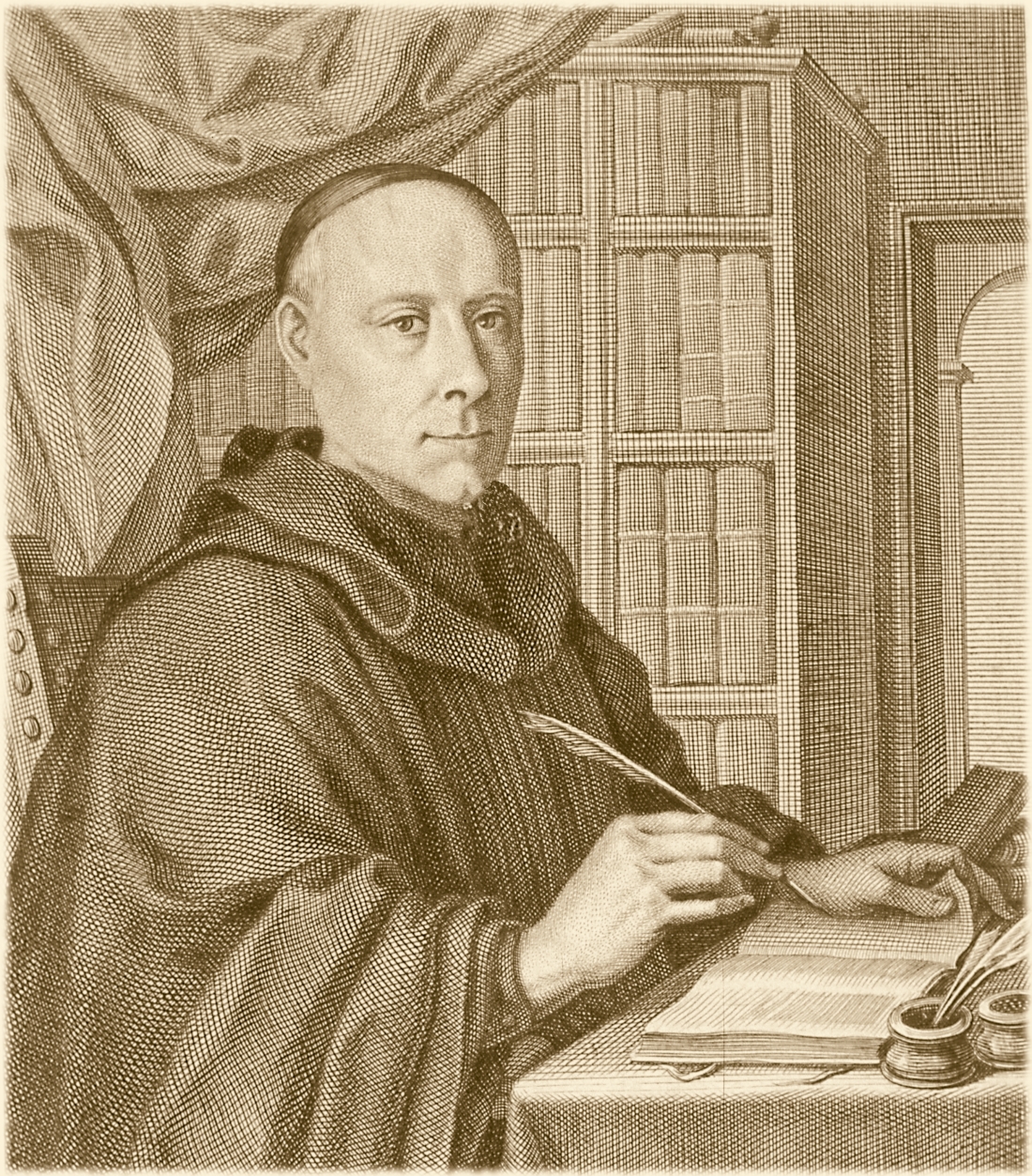- Benito Jerónimo Feijóo y Montenegro
Infobox Person
name =Benito Jerónimo Feijóo y Montenegro
image_size =200 px
caption =Portrait of Feijóo y Montenegro by Juan Bernabé Palomino
birth_date =birth date|1676|10|8|mf=y
birth_place = Casdemiro, Ourense
death_date =death date and age|1764|9|26|1676|10|8|mf=y
death_place =Oviedo
occupation =Monk, scholar, essayist
spouse =
parents =
children =Benito Jerónimo Feijóo y Montenegro (
Casdemiro , Galicia,8 October 1676 ndashOviedo ,Asturias ,26 September 1764 ) was a Spanish neoclassicalmonk andscholar noted for encouraging scientific thought in Galicia and others places in Spain.He joined the
Benedictines at the age of 12, and had taken classes in Galicia, León, andSalamanca . He later taughttheology andphilosophy at the University ofOviedo , where he earned a professorship in theology. Feijóo was a prominent essayist for the Spanish, and his critiques, letters, and plays helped change the steadfast beliefs of many during the 18th century.His two famous multi-volume collection of essays, "Teatro critico universal" (1726-1739) and "Cartas eruditas y curiosas" cover a range of subjects, from education, law, and medicine, to superstitions and popular beliefs, influenced in these matters by other
European essayists asChristian Thomasius orThomas Browne . He is also of interest as a writer in theGalician language . He also wrote what is considered to be one of the first pieces of feminist literature in his essay entitled "Defensa de las mujeres". In which, he discusses the lack of reason and/or evidence, a huge focus of the Enlightenment, in the attitudes towards women during that era in Spain. However, in some occasions, he showed certain credulity, assuming as a natural possibility the existence of the "Anfibio de Liérganes" (Lierganes Amphibious Man), a being half man, half fish.Father Feijóo was a debunker of myths. He had great interest in natural science and many of his essays touch on topics related to this subject and to the many myths about creatures and lands that abounded at that time. One example of how far his naturalistic bent went can be found in a story told by Julio A. Feijóo, one of his descendents, born in Cuba in 1910. Father Feijóo believed that demonic possession was a psychological phenomenon. Once he was called upon to perform an exorcism, and in order to demonstrate that this phenomenon was more due to suggestibility than anything else, in performing a spurious exorcism on the "possessed" subject, he read from Bocaccio's famous bawdy work the "
Decameron ". Upon hearing the Latin lines, the "possessed" individual settled down and declared himself to be free of demonic influence.fact|date=February 2007Persondata
NAME=Feijóo y Montenegro, Benito Jerónimo
ALTERNATIVE NAMES=Feijoo y Montenegro, Benito Jerónimo
SHORT DESCRIPTION=Monk, scholar, essayist
DATE OF BIRTH=October 8 1676
PLACE OF BIRTH=Casdemiro, Ourense
DATE OF DEATH=September 26 ,1764
PLACE OF DEATH=Oviedo
Wikimedia Foundation. 2010.
